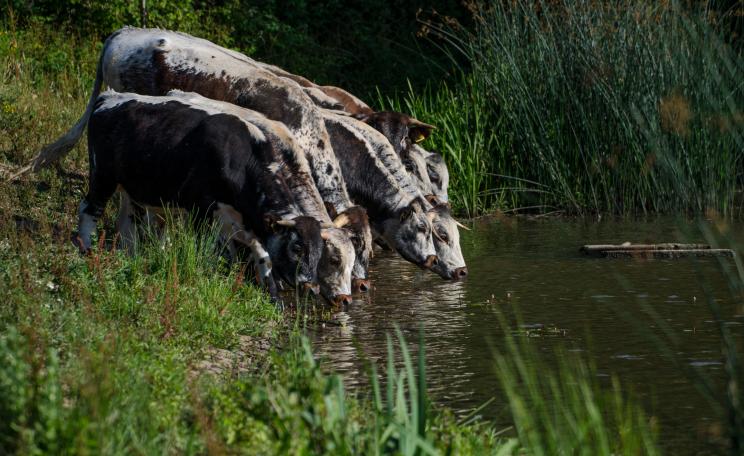-
Protections that ensure consumers know whether products are made from genetically modified crops and animals have been and continue to be one of the most strongly contested areas of European Union legislation.
The protections that we in the UK have had as EU members are not strong enough: the important Risk Assessment of Genetically Engineered Organisms in the EU and Switzerland (RAGES) study found that the European Food Safety Authority’s GMO panel’s “implicit and unaccountable risk assessment policies ... are far more likely to underestimate the range and severity of possible adverse effects, rather than to overestimate them”.
But these regulations are far stronger than those in the United States of America and many other countries.
Gene editing
There were concerning indications that the government is likely to want to head in the US direction and to throw the EU rules on the Brexit bonfire in a debate in the House of Lords last Thursday.
In a broad-ranging discussion on gene editing, Lord Bethell referred to the European Court of Justice ruling that plants and animals subject to mutagensis (gene-modifying techniques such as CRISPR that alter the genome without introducing foreign DNA), saying “the government feel[s] that this ruling is neither scientific nor justified”.
On Twitter later, he roundly applauded a contribution to the debate from Viscount Ridley (yes the coal mine-owning, climate change-doubting Matt Ridley), that called for “encouragement of genome editing in agriculture” and for the government to “break free from the EU approach”. Ridley’s approach might be summed up as “gene edit early and gene edit often”.
But as the RAGES report highlights, gene editing can have unintended effects — and intended effects — that go much further than anyone thought they would: both gene combinations and biological ramifications. They can be significantly different from those produced by conventional breeding, including random mutagenesis.
Disaster
Many of the contributors to the debate - which mostly focused on the potential use of genome editing in humans - made this very point.
Even Lord (Robert) Winson, who proudly identified himself as a “unashamed gene editor,” said “the risk of gene editing in the embryo is of massive importance”.
He added: “CRISPR is not an accurate technique … It carries the risks of off-target mutations, of epigenetic effects, of possibly producing cancer, of misdiagnoses and of producing completely unpredictable effects”.
I noted a lesson from my native Australia - how, in the hope of controlling a destructive beetle, the release of 3,000 cane toads in Australia in 1935 created a continuing and still expanding environmental disaster.
Biological changes do not exist in a vacuum - they also interact with political, economic and social factors. Viscount Ridley spoke about potentially genetically modifying pigs so that they are not prone to porcine reproductive and respiratory syndrome.
Maybe that means that people will think they can house pigs much more closely together, in far more crowded conditions. What will be the animal welfare ramifications of that? Or the emergence of potential pandemic human diseases such as swine flu?
Agroecology
But the potential impacts of the GMO route are much broader. The government now is talking the talk about agroecology - the need to produce food and manage land in ways that respects and enhances natural systems.
The approach of genetically modification is the very opposite of this. It treats nature like a machine, in which the throwing of one switch, the changing of one metabolic system, can solve a problem or enhance production, without other impacts.
The apparently simple introduction of glyphosate resistance into crops, and the subsequent spread of this resistance into weeds is one demonstration of the danger of this approach.
There is so much we do not understand, about the operation of biological systems in soils, and about the operation of the microbiome, in humans and other animals. These are incredible complex systems that have developed over millions of years.
I referred to how we are just beginning to understand how what we eat impacts on quiescent viruses (prophages) in the bacteria in our bodies, that may then change the composition of our microbiome.
Contamination
There’s a further an important practical point to be made about the forthcoming Brexit negotiations: the UK will be sharing a land border with the EU in Ireland, as well as having potentially GM crops not very many miles from EU lands across the Channel.
This is likely to be a point of considerable contention should we risk contaminating their territory with genetically modified organisms it has banned or more tightly controlled.
And it could have massive impacts on plans to export UK products into the EU - possibly including the very Welsh lamb the Lord Bethell was lauding in the debate.
This Author
Natalie Bennett is a Green Party peer.







